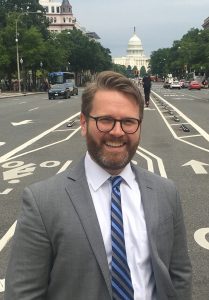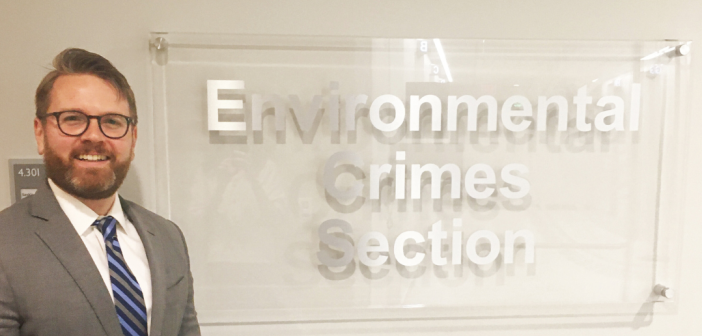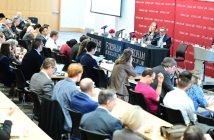More than 100 rising second- and third-year Fordham Law students are completing summer associate programs, judicial internships, and fellowships throughout the country and around the world this summer. Through their experiences, they are forging new connections, honing their lawyering skills, and immersing themselves in the practice of law while pursuing their passions.
Chris Whittaker ’25 is spending the summer months gaining hands-on experience in public service work through a fellowship provided by the John Paul Stevens Foundation, which is dedicated to promoting public interest and social justice values in the next generation of American lawyers. As a 2024 Justice John Paul Stevens Public Interest Fellow, Whittaker is working at the Crimes Section of the Environment & Natural Resources Division of the U.S. Department of Justice.
What is your hometown?
York, Pennsylvania, but I’ve lived in New York City for over 10 years.
Where did you study before Fordham Law?
I was a music major! I studied composition at the Peabody Institute of the Johns Hopkins University, and I received a masters in orchestral conducting from the University of Michigan.
What are your areas of interest?
I’m primarily interested in environmental law, particularly climate change and net-zero transition.
What are you doing this summer?
I’m a summer law clerk in the Crimes Section of the Environment & Natural Resources Division (ENRD) of the U.S. Department of Justice (DOJ).

Chris Whittaker ’25 in Washington, D.C.
What attracted you to this summer internship program?
ENRD works on all aspects of environmental law, and the criminal prosecution of our federal environmental statutes is particularly fascinating. The DOJ is home to outstanding attorneys and public servants who possess superior writing and research skills as well as years of meaningful litigation experience.
What were you most excited about for this opportunity?
I am most excited about the chance to work with a wide variety of lawyers and participate in all stages of investigation and litigation.
What has been your experience like working at the DOJ? Can you describe your day-to-day work?
In this role, I have been drafting and editing briefs, conducting research, assisting in investigations, crafting jury instructions, and attending court proceedings and witness interviews.
What has been your favorite part of the experience so far?
My favorite part has been the opportunity to work on live cases whose outcomes make a meaningful difference for real people. The injustice faced by victims of environmental crimes goes beyond abstract measurements or technical violations of nuanced regulations. The Crimes Section fights back against the violent excesses of greed that would erode the common heritage of the earth we all share.
How do you think this summer experience will help you when you return to Fordham Law?
I am being stretched and challenged in new ways by the opportunity to work with some of the nation’s best environmental litigators. The work is very substantive and wide-ranging, much of it building on both the environmental law classes I’ve taken at Fordham Law as well as evidence and legal writing. The attorneys at DOJ set a high bar for excellence, demanding my best work from the first draft. I will definitely return to Fordham with a better sense of “what is it all for?”, understanding the pace of work demanded in litigation.
Follow @fordhamlawnyc to read more student stories in our #futurefordhamlawyers series.




